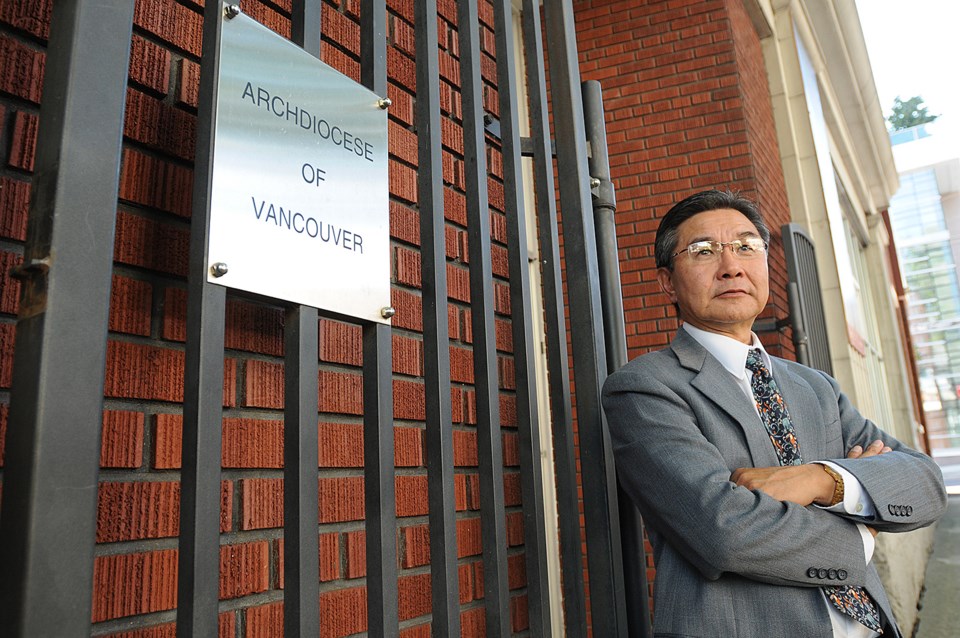(This story was originally published by the Vancouver Courier)
Vancouver Catholic schools have approved a gender policy.
The decision was announced in a July 16 joint statement issued by the Catholic Independent Schools of the Vancouver Archdiocese and the family of Tracey Wilson. Wilson is an 11-year-old who attended Sacred Heart elementary school in Delta for two years as a boy and then registered in 2012 as a girl and asked to be treated as such upon the recommendation of her psychologist.
The Archdiocese said its new policy will accommodate variant gender expression and students with gender dysphoria. Gender dysphoria is defined as the distress that may be experienced by a person whose gender at birth is contrary to the one they identify with.
Vancouver is the first Catholic school district in Canada to have passed a policy related to gender.
The Wilsons had wanted the then 11-year-old to be addressed with female pronouns, permitted to use the girls’ bathroom and wear a girl’s uniform.
The school said it would need to consult the board and later agreed Tracey could use the school’s accessible bathroom.
The Wilsons pulled Tracey out of Sacred Heart and enrolled her in a public school after a couple of months of going back in forth with the Catholic school.
“It was turning into a point of distress for her because having to live as male at the school when she was living her life outside the school as female her anxiety was getting higher and her thoughts were getting more negative,” said Michelle Wilson, Tracey’s mother.
The Wilsons filed a human rights complaint in spring 2013 after Tracey was settled at her new school. Wilson said they didn’t want any other family to share the same experience.
Doug Lauson, superintendent of CISVA, said this first instance of being asked to accommodate gender dysphoria convinced the archdiocese it needed to develop a policy to address this “emerging issue.”
The policy was developed over two years through mediation with the Wilsons.
The archdiocese’s policy only accommodates variant gender expression and gender dysphoria in students.
“Gender transitioning is contrary to Catholic teaching, and therefore the Catholic school cannot support any transitioning actions,” the policy states.
Lauson said the archdiocese draws the line at taking hormones to transition to another gender.
“The body is created in the image and likeness of God, so it is a divinely given gift not to be abused,” Lauson said.
The policy directs that an accommodation plan for gender dysphoric students be developed in collaboration with the family, educators, pastors and medical professionals.
“Such accommodations may include a change in common name, use of an alternate change room, uniform adaptations, classroom adaptations, alternate delivery of the Catholic sex education curriculum, sports team participation, field trip accommodations, and change of pronouns,” the policy states.
Lauson said teachers will receive professional development about gender dysphoria.
Wilson, now a former Catholic, would prefer a policy that was inclusive of everyone. But she called the policy an imperfect start.
Lauson expects the policy to draw interest from other archdiocese across Canada.
The human rights complaint was resolved after the CISVA approved the gender expression and gender dysphoria policy and paid the Wilsons a sum that both parties have agreed will remain undisclosed.
The Vancouver Diocese stretches from Chilliwack to the North Shore and up to Powell River. It includes 40 Catholic elementary schools and six high schools.



